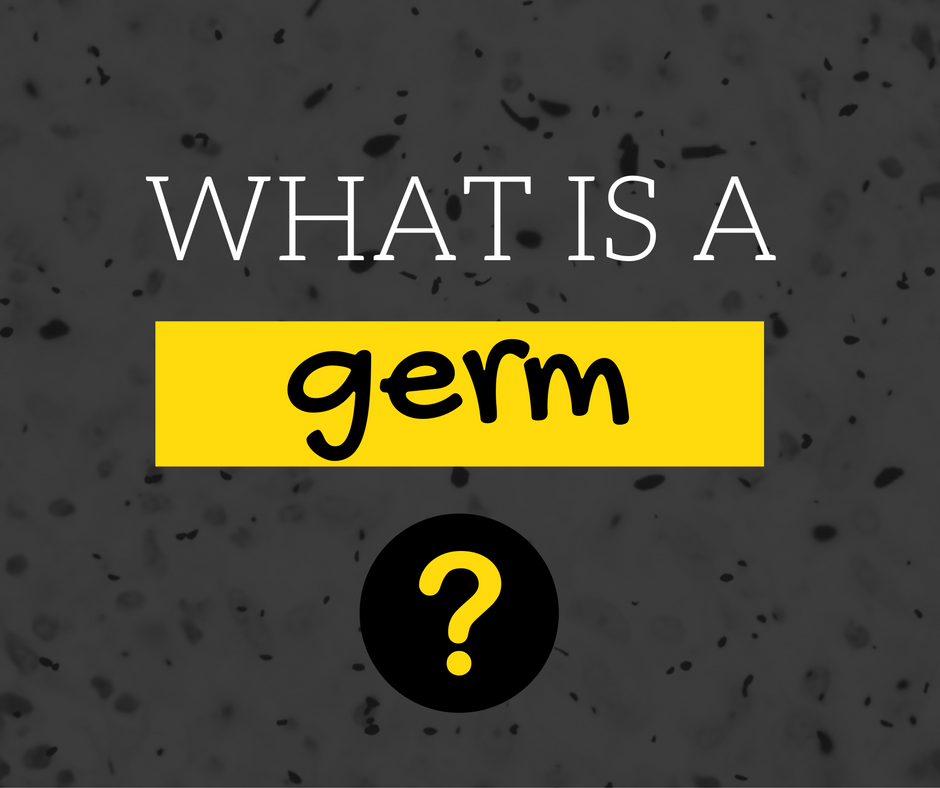
We have all heard of the word “germ”. But what is a germ? Actually, "germ" is a generic term that refers to micro-organisms that cause diseases. Some examples are viruses, bacteria, fungi, and protozoa.
Viruses are the culprits behind the common cold, influenza, and many ears, nose, and throat infections. In fact, there are approximately 200 viruses that cause influenza (flu) and influenza-like illnesses (ILI).
A virus can reside on hard surfaces for a few hours or travel through the air in tiny salivary or nasal droplets. Some cold viruses can survive on a person’s hand for an hour! For this reason, it’s best to cough or sneeze into the corner of your elbow and not on your hands. Once the virus is introduced into another person’s mouth or nose, through air droplets or through one’s hands, it has the ability to enter the cell nucleus (where our DNA is produced) and be replicated (multiplied) into millions of copies. If left unchecked, these baby viruses then infect other cells in the sinuses, throat, ears, and even lungs, producing symptoms such as fevers, chills, sweats, body aches, nose congestion, runny nose, cough and others.
Since viruses are widespread, it’s a marvel we don’t get sick more often, right? But our immune systems have a lot more cells than the viruses, and can often rapidly detect them and destroy them. However, viruses can spread rapidly when the immune system is compromised, which happens when one does not get enough sleep, hydration, proper nourishment, vitamins, exercise, or is over stressed. So, preventing a cold and minimizing flu like symptoms is as simple—and at the same time as difficult as—keeping our immune system healthy. Additionally, since a majority of the immune system is located in the intestinal tract, feeding on unrefined, unprocessed, and non-toxic plant-based foods will eliminate additional burdens on the immune system.
There is no cure for viruses, and antibiotics are not an appropriate treatment. The immune system is the best treatment against a virus. Again, prevention proves to be worth more than a pound of cure. Maintain good hand hygiene by washing your hands frequently, especially after shaking hands or touching public property. Avoid touching your mouth and nose, as those are the main portals of entry for viruses. Don’t cough or sneeze into your hands, rather into the corner of your elbow. Maintain an eight-hour per night sleep regimen and introduce aerobic exercises into your day. Nutritional immune boosters are garlic, ginger, and edible mushrooms such as Shiitake, maitake, and reishi mushrooms.
If you do begin to have cold or flu symptoms, which usually begins as a sore throat and quickly progresses to nose congestion, runny nose, sneezing, and a cough in just a few days, attempt to add some natural immune boosting treatments into your diet.
Relief can also be found in Zinc and Oregano oil. Zinc is an essential mineral that is found in capsules, lozenges, nasal spray, and syrup form and used to relieve flue symptoms. Take a loading dose of 46 milligrams of zinc, and then smaller doses of zinc lozenges every 3-4 hours for 3-14 days. Zinc nasal sprays can be used every 15-30 minutes, unless nose irritation prevents doing so. Zinc can be taken up to 100 mg daily for flu like symptoms. Oregano oil can be an effective antiviral and can be taken at 500 mg twice daily. Unfortunately, Echinacea has not been shown to be superior to placebo (sugar pills).
Following these best practices of watching where we sneeze or cough, keeping good hygiene, and keeping the immune system healthy, will equip us to prevent spreading, as well as falling prey to this type of germ.